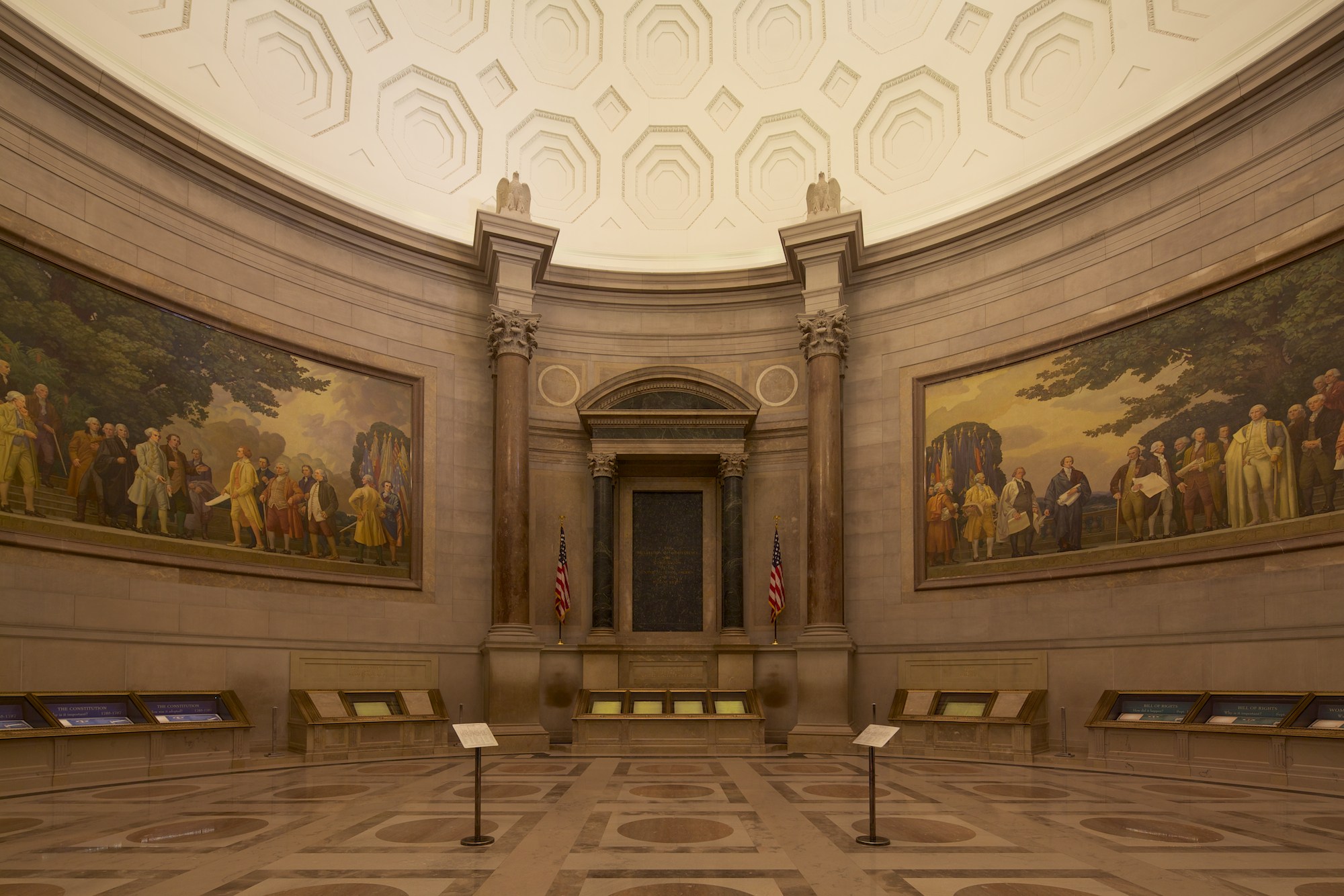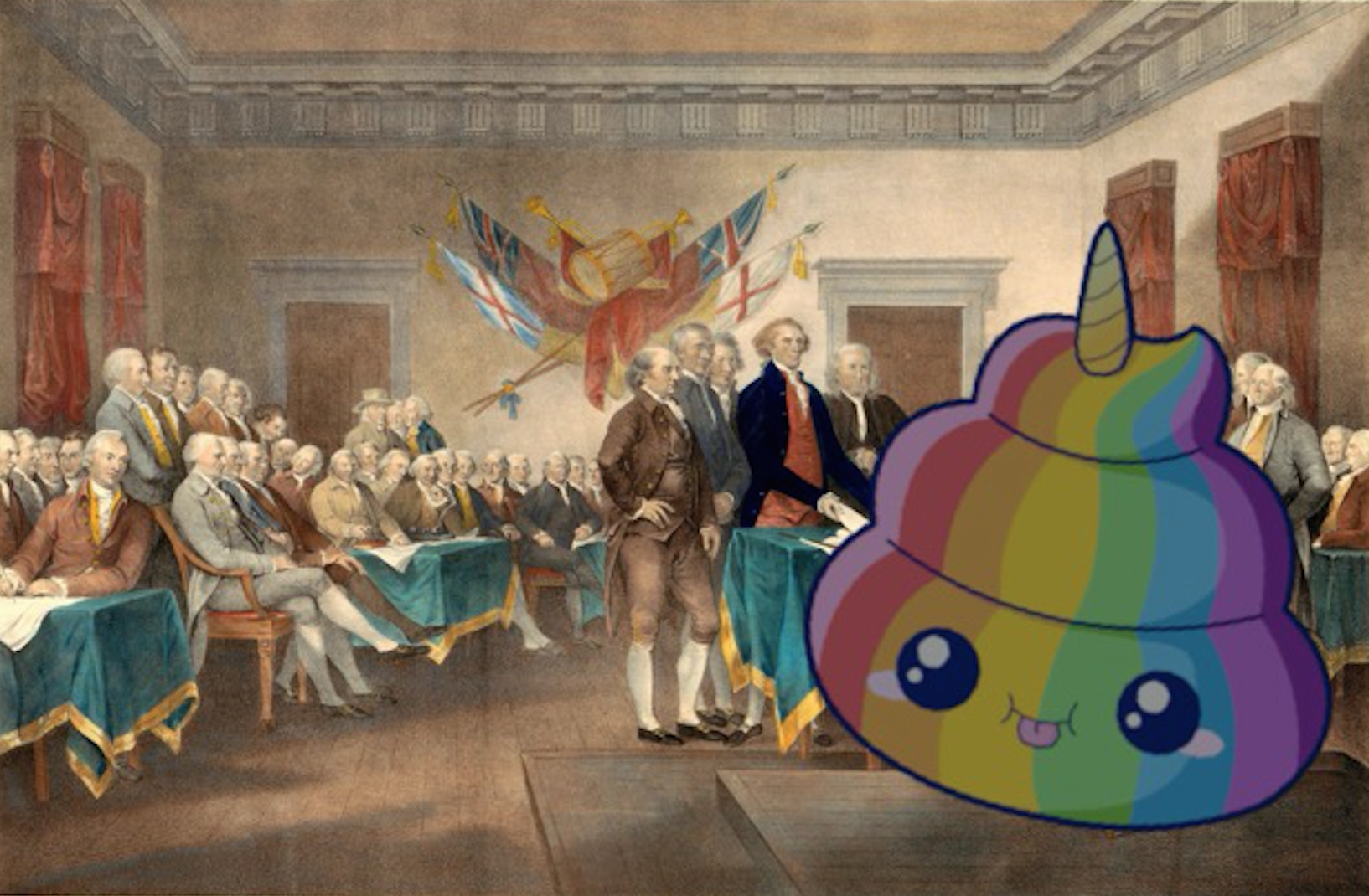Today's fights on the Right benefit old wisdom and new thinking alike.
Recovering America: What’s at Stake in the Ahmari-French Debate

The New Right must reassert a vision of justice rooted in the common good.
There have now been many interesting reflections on New York Post op-ed editor Sohrab Ahmari’s provocative First Things essay, “Against David French-ism.” While Ahmari’s critique was triggered by the increasing prevalence of “drag queen storytime” at public libraries around the country, his broader, central insight is that French’s widely-held political principles and style are ill-suited to our times. Ahmari, correctly diagnosing a modern Left hell-bent on total cultural conquest, wants to meet them on the battlefield with a counter-offensive designed to win—and then enjoy the fruits of victory. French, by contrast, calls for persuasion, civility, and “pluralism.”
Anyone who has not should read Ahmari’s essay and French’s reply. We out West have a few provocations to add.
The American Common Good
Those on the side of “Pastor French” (Ahmari’s apt and cutting label) need to relearn how to be political and above all to stop confusing permanent principles, or natural right(s) and law, with the almost infinitely changeable applications of principle in shifting political environments. The natural right to property does not help you chart a prudent national industrial policy against China; “free markets” is an abstraction rather than a principle.
As for those on the side of Sohrab (Father Ahmari?), though they occupy the more sensible and realistic position given the threats we face, need to revisit the wellsprings of the principled but eminently reasonable (and hardheaded) Americanism of the Founding.
Both sides, for different reasons, are confused about the “liberalism” of the Founding and its teaching for the Right today.
Ahmari’s libertarian-leaning critics of various stripes seemed most appalled by his suggestion that the Right fight to win: “‘The only way is through’—that is to say, to fight the culture war with the aim of defeating the enemy and enjoying the spoils in the form of a public square re-ordered to the common good and ultimately the Highest Good.”
Liz Wolfe, managing editor at The Federalist, responded with the traditional libertarian reticence about wielding state power: “But who will enforce this re-ordered public square, and what does it look like?” Echoing Anthony Kennedy, she recommended Americans “determine for themselves their own pursuits of happiness and meaning” to vindicate the “values of autonomy and free choice.”
Meanwhile, French’s boss at National Review, Charles C.W. Cooke, raised the favored and timeless objection of the libertarian high school senior (I should know, I once was one): “What is the ‘common good and ultimately the Highest Good’? Who decides? Ahmari? The Pope? Nicolás Maduro?” Bret Stephens, writing for the NYTimes, called Ahmari a “would-be theocrat.” These facile histrionics are jarring coming from seasoned journalists.
While Ahmari—a recent, zealous, and eloquent Catholic convert—writing about a capital-H, capital-G “Highest Good” might call to mind for some readers the Decalogue or papal encyclicals, America’s Founders were very comfortable with language of the good—common or high—and the true. They certainly did not think happiness would issue from mere autonomous free choice. George Washington offered the most unambiguous and forceful expression in his First Inaugural, pledging “that the foundations of our national policy will be laid in the pure and immutable principles of private morality” and stating that “there is no truth more thoroughly established, than that there exists in the economy and course of nature, an indissoluble union between virtue and happiness.” Theocrat! Absolutist!
As Thomas West has pointed out in an important recent book, The Political Theory of the American Founding, the writings and practices at the Founding promoted morality, virtue, and religion commensurate with the level of government in question. This meant a more comprehensive approach at the state level, of course, but did not preclude federal action to promote morality and virtue. The Feds were most active in various rhetorical and symbolic ways, especially in speeches, writings, awards, the Great Seal of the U.S., and the performance and celebration of patriotic music.
In other words, the individual and corporate responsibilities and duties that formed the necessary basis of the common good were not subjectively up for grabs. The “goods,” individual and common—secured and vouchsafed by civic partnership in America at the state and national level—were outlined and circumscribed by a moral and natural law knowable by reason, and aided and secured by certain religious teachings and practices.
Contrary to a certain strand of anti-or-post-liberalism on the Right, the “liberalism” of the Founding does not run in a straight line to Drag Queen Storytime. Americans who still want to be for both God and country have an American political philosophy and tradition from which to draw.
Back to Justice, Back to the General Welfare
The main difference between Ahmari and French, and their assorted defenders, is the judgment of the threats faced by the Right from a Left in America that has gotten aggressive, arrogant, and messianically “woke” after eight years of the Obama administration. Questions of prudence—what dangers we face and what to do about them—continue to divide the Right as they have acutely since June of 2015 and Trump’s appearance on the political scene.
French himself illustrates this difference nicely in his response to Ahmari, writing that he was at one point more inclined to Ahmari’s current culture warrior mentality:
Many years ago, before I deployed to an actual war, I gave a speech at a conservative gathering in which I actually said these words: “I believe the two greatest threats to the United States are university leftists at home and jihadists abroad.” Looking back, I’m ashamed I said it. It was fundamentally wrong, as I quickly learned during my deployment. In the course of almost a year in Diyala Province, Iraq, I saw the most dreadful things, sights that haunt me today…. And as much as I disagree with university radicals, I lived a happy life in law school in deep-blue Cambridge, Mass…. My political opponents are my fellow citizens. When I wore the uniform of my country, I was willing to die for them. Why would I think I’m at war with them now?
The first error here is French’s subtle elision of culture war and actual war. Of course we’re not at literal war with our fellow citizens and political opponents. Ahmari never suggested as much. But we are in a contest with our political opponents on the Left that gets to the deepest questions about the nature of a just regime. The leading edge of Leftism in America, which currently holds the more centrist members of its political party firmly in hand, wants to redefine the common good and reorder the public square in line with an unnatural vision of flourishing and an anti-human idea of autonomy. This vision did indeed start with university Leftists, and French was right those many years back: it is the central domestic threat to America, Americanism, and a life of civic friendship together. Left and Right in America now believe in two fundamentally different constitutions.
As I have written here before, Drag Queen Storytime and other provocations are symptoms of the larger project of the vanguard of the modern left: a divide-and-conquer ideology of multiculturalism—with its politics of identity and speech code of political correctness—that will destroy America if left free to roam and reorder American politics.
Many otherwise disparate voices on the Right understand this. Take as two examples Ben Domenech and Gladden Pappin, otherwise separated by a wide gap philosophically and politically. Domenech, who publishes The Federalist, wrote on Twitter in response to French:
The leftist politicians running for president aren’t promising a return to normalcy. They are promising to pack the court, eliminate the electoral college, and have nationwide unlimited abortion funded by you. That is not an agenda for retrenchment, it is an agenda that says: we will seize power, and it will never be taken from our grasp again…. The rhetoric of [Michael] Anton’s Flight 93 piece bothered me, and I said so at the time, but his core construction spoke to the fears of many Christian conservatives and has been borne out since.
Pappin, though not writing about David French, nonetheless captured the naiveté of the polite Right in a recent piece in American Affairs, where he is deputy editor: “When the other party conceives of you as an enemy, then you are enemies, not friends.”
The exchange between Ahmari and French is part of a larger, roiling debate about the future of the Right, constitutionalism, and Americanism. The constituency for the “dead consensus” (as Ahmari and others put it in a recent manifesto) that reigned in previous decades is dwindling to a crowd fit for a conference room. This is a healthy development. Matthew Continetti made a learned and valiant attempt recently to outline the contours of the post-Trump Right that vie to replace that consensus. He stumbled at the end, however: “Appeals to the common good are rhetorically powerful, but they often run up against the shoals of America’s constitutional structure and overwhelming emphasis on individual rights.” The Founders would have found these alleged conflicts puzzling. The Declaration of Independence, after all, ended with a mutual and common pledge of “lives,” “fortunes,” and “sacred honor”—and the Constitution’s preamble talks of “establish[ing] justice” and “promot[ing] the general welfare.”
The question before us is not the preservation of a neutral public square (as if a people’s public life together in any regime could be neutral on questions of right and wrong), but the mores of that public square. The modern Left is in the process of establishing its own woke theocracy in our many public squares, from neighborhood to nation, complete with heresy trials and excommunications. The Right’s response should be combat and rollback, and the reestablishment of a public square ordered by the laws of nature and nature’s God.
The American Mind presents a range of perspectives. Views are writers’ own and do not necessarily represent those of The Claremont Institute.
The American Mind is a publication of the Claremont Institute, a non-profit 501(c)(3) organization, dedicated to restoring the principles of the American Founding to their rightful, preeminent authority in our national life. Interested in supporting our work? Gifts to the Claremont Institute are tax-deductible.
Moral and religious neutrality undermines the basis of American law.
The New Right renews Americanism.
A technological transformation is behind the rise of the New Right.
The American Founding was not based on “neutral principles.”
The Ahmari-French debate is just the beginning.






